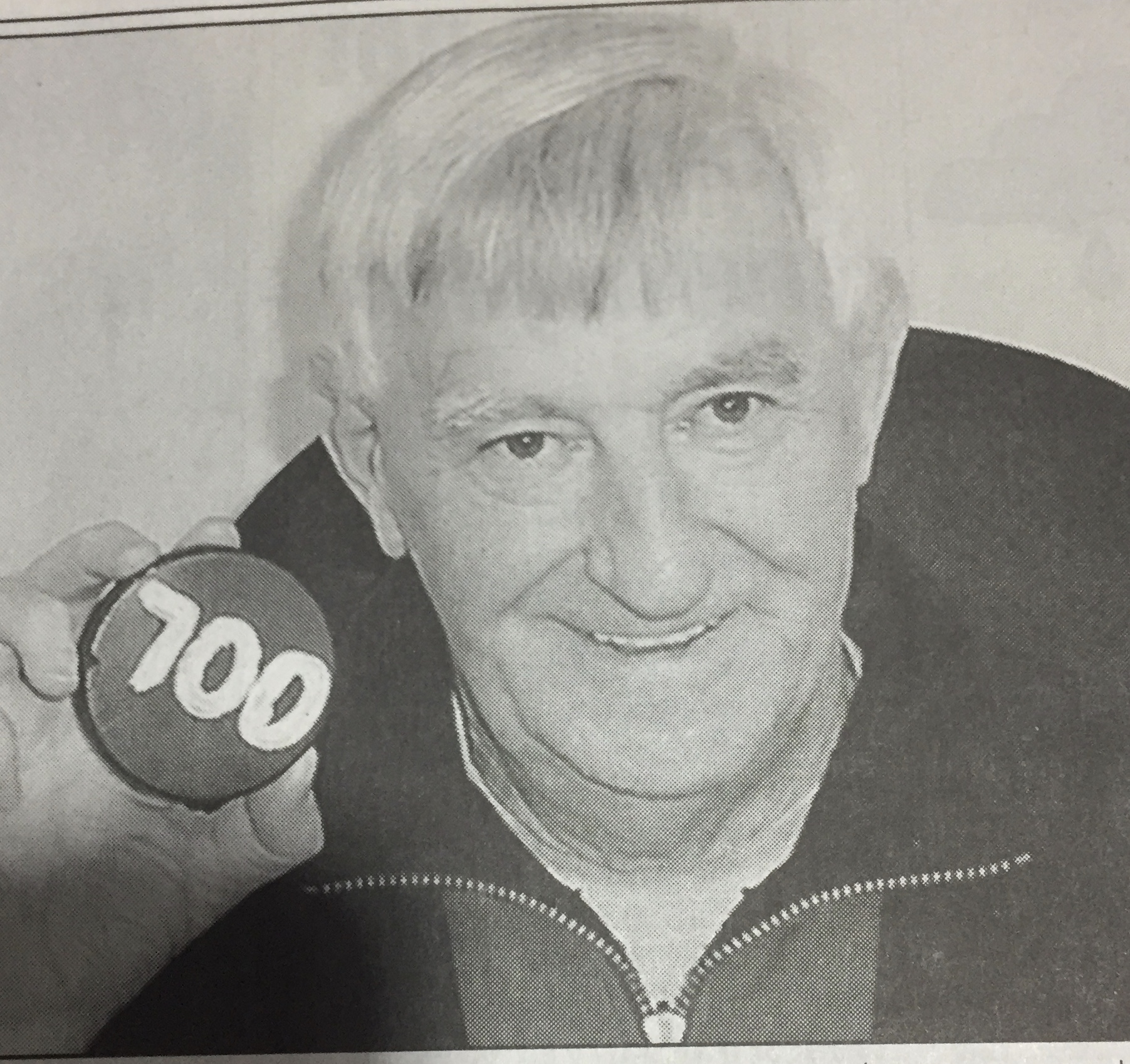Pembroke Lumber Kings General Manager Art Bogart was expecting big things from his hockey club as the season approached. Like the rest of the country, Bogart was paying attention to the Canada-Soviet Union summit series in September of 1972, but he was also busy recruiting a few more players for his hockey club.
Bogart had been around Pembroke’s hockey teams for decades. For years he was the architect of the Pembroke Senior Lumber Kings roster, but when senior hockey faded away in the 1960’s he turned his attention to bringing Pembroke a junior A team that would compete for a national championship. 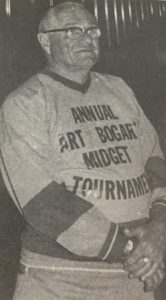
The previous season he had hired a new coach, a military man who had played some senior hockey with the Lumber Kings and had impressed Bogart as having a keen eye for talent. Mac MacLean wasn’t looking for the job. He ran a local sporting goods store and was trying to sell Bogart some hockey sticks for his team, when Bogart offered him the coaching position.
Bogart asked MacLean how long it would take him to win a league championship. MacLean said two years. In his first season behind the bench, the Lumber Kings made the post-season but bowed out to Ottawa in the playoffs. In year two, MacLean’s bold prediction would come true.
Expectations were high for the 1972-’73 Lumber Kings. In the club’s program that was sold for 25 cents at home games, the booklet made it known that the Kings had their strongest team in a decade. It boldly stated, “Mack has put together a team that should win our league pennant and suit up for the Centennial Cup Playoffs.”
But before the puck dropped on the new season, the team was met with tragedy. Gale Linton, a top forward the previous season and who was a lock to make the team, was killed in his hometown of Bancroft in a car accident, just as he was about to report to training camp.
The news was devastating. Team President Jack Minns announced that Linton’s number eleven would be retired, giving Linton’s jersey to his family in a pre-game ceremony at the club’s regular season opener. The team travelled to Bancroft for the funeral where the players were honorary pallbearers.
It was a difficult way to start the season, but the players remained focussed and started the season with a flurry of wins. The victories kept coming as the Kings tore through the rest of the league. It became obvious the club was almost unbeatable.
By the end of the regular season, there was no denying that this was a special club, one that had set several league records. The Kings won 47 games, losing only 4 times all year and tying 4 more games. They had gone undefeated on home ice and were blowing teams out as the rolled to a top seeding in the league standings.
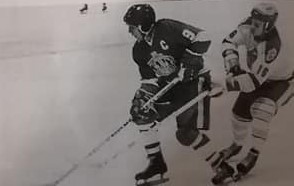
Loaded with talent, the Kings produced two future National Hockey League players in Tim Young and Rod Schutt. They also had a small sparkplug named Steve Croucher who put up 39 goals and 134 points in 54 games to lead the team in scoring. Listed in the program as only 5 feet, 6 inches tall and weighing 130 pounds, Croucher was fast and nifty. He found the puck and the puck found him, and if he wasn’t scoring Pat Hahn was.
The 18-year old Hahn hailed from Otter Lake, Quebec and he became a goaltender’s nightmare. In the previous season, Hahn had scored a modest 12 goals for the Kings, but in the 1972-73 campaign, he would lead the league in goal scoring with 69 markers. The club was also tough. Players like Terry Conroy, Derrick Emerson and Murray Thrasher became fan favourites for their willingness to drop the gloves to defend their teammates.
The team was so overpowering, none of the other clubs in the league wanted to play them. In their final game of the regular season, the Smiths Falls Bears and Brockville Braves intentionally tried to throw the game they were playing against each other to avoid having to face the Kings in the first round of the post-season. It was so bad that players were scoring on their own nets. 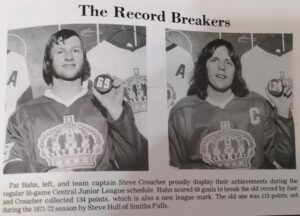
The Canadian Amateur Hockey Association wasn’t pleased. They threw both teams out of the playoffs and handed out some hefty suspensions to team officials, leaving the Lumber Kings to face the Ottawa Rangers in the league championship series which was extended to a best of nine series. Pembroke won it in five games straight and entered the Centennial Cup playdowns.
The Kings started well, knocking off the Northern Ontario champions, the St. Paul Vulcans in five games, but in the first game of that series they lost one of their top defenceman for several weeks. Terry Conroy was cut for more than 300 stitches when a skate blade slashed his face during a fight with the Vulcans’ Buzz Parrish. It was a gruesome scene, leading to Parrish being suspended for the series. Years later Conroy said it was an accident, but at the time Parrish was deemed a villain and the governing body wisely chose to keep him out of the line-up for the remainder of the series.
In round two of the Centennial Cup playdowns, the Kings battled with the Chatham Maroons in a series that went the distance. The Maroons had grabbed a 3-2 series lead, forcing the Kings to win game six and seven on home ice to displace the Southern Ontario champions. In the final game, the Kings won 6-1 as Tim Young potted a hat trick. 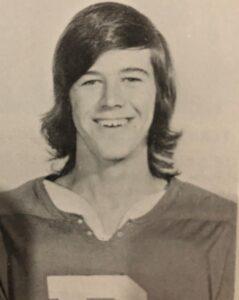
In the Eastern Canadian final, the Kings met the St. Jerome Alouettes, the Quebec champions, and Pembroke won in five games. That punched the Kings ticket to the national championship series and a meeting with the Portage La Prairie Terriers of Manitoba. It would be a series that would be played entirely in Western Canada.
As soon as Mac MacLean walked into the Centennial Arena in Portage La Prairie, he knew his team would never play a game in the rink. It was May of 1973 and much of Manitoba was experiencing summer like weather conditions and lots of rain. When MacLean entered the arena, water was pouring through the roof and on to the ice below.
With the home of the Terriers not available for the games, the Canadian Amateur Hockey Association was now scrambling to find a place to play its junior hockey national championship series. They chose to play the first three games of the series in Brandon where a new arena had recently opened. It was 130 kilometres away from Portage La Prairie, but it was the best option available on short notice.
A large contingent of Pembroke hockey fans had made the trip to Western Canada to cheer on the Lumber Kings. Ed and Leona Gallagher had brought their eight children and Pembroke Mayor George Abdallah had also jumped on a plane in the hopes of seeing history made as the Kings tried to bring the hockey crazed city ifs first national title.
Game one of the series started well for the Kings as they built a 4-1 lead in the second period, but they couldn’t contain the Terrier’s Randy Penner who scored all five Portage goals in regulation time as the Terriers came back to win the opener 7-5 in overtime. It was a crushing loss for the Kings. They had outshot the Terriers 44-30 and Mac MacLean admitted after the game, they had let it slip away. 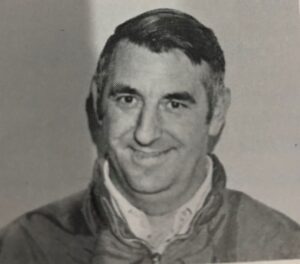
“We had a chance to put that game out of reach, but we are hanging on to the puck too much in their end. And when we got chances, we missed wide open nets,” MacLean told reporters after the game.
Games two and three were equally frustrating. The Terriers won the second game 4-2 and then in a bizarre turn of events, the final six minutes of game three weren’t played when the referee, Bill Chapple, called the game because he said the Lumber Kings refused to put a player in the penalty box when they were assessed a too many men on the ice penalty. Portage won the game 3-1 giving them a stranglehold on the series, but MacLean and the Lumber Kings executive were livid.
MacLean told reporters after the game, “The referee choked. We had eight men on the ice and they had seven. We were both making changes at the time. He lost control of the game and we’re protesting,” complained MacLean. 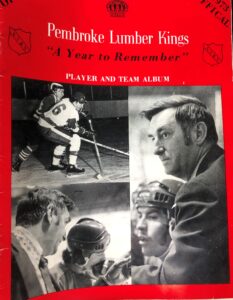
The Kings did file a protest, but it was soundly rejected. The club was facing elimination as the series shifted to the Winnipeg Arena, the home of the fledging Winnipeg Jets of the new World Hockey Association.
Most of Portage La Prairie had made the drive into Winnipeg to watch game four, anticipating a series clinching victory for the Terriers. The crowd, listed at almost 9,000 fans, remains the largest crowd to ever watch a Centennial Cup game and they went home disappointed. In their only win of the series, Pat Hahn and Bob Wright each scored twice as the Kings dumped the Terriers 6-4.
The following night, the Kings season ended in a 4-2 loss in Winnipeg. The dream season was over, but the club had won the hearts of Pembroke’s rabid hockey fans. The players returned to a heroes welcome, first with a luncheon at Parliament Hill hosted by Prime Minister Pierre Trudeau and Senator, Paul Martin Senior, who grew up in Pembroke, and then with a parade through Pembroke’s downtown.
And then it was over. The team that had put together such an incredible season was dismantled. Mac MacLean left for Sudbury to coach the Wolves of the Ontario Hockey Association. Rod Schutt followed him to the nickel city. Tim Young moved on to the Ottawa 67’s. Marty Gannon suited up with the Kitchener Rangers. Randy Mohns advanced to Concordia University. Steve Croucher moved East to study at Saint Francis Xavier University and Pat Hahn joined Rensselaer Polytechnic University. Only a few players returned to play for the Kings under their new head coach, Bryan Murray in the 1973-’74 season.
As the Lumber Kings mark the fiftieth anniversary of the 1972-73 Centennial Cup finalist team, it’s hard not to tip your hat to what the club accomplished. They were undefeated on home ice until they lost a game to the Saint Paul Vulcans in the first round of the Centennial Cup playdowns. They put together a 37 game stretch without losing a game and they scored 368 goals in 55 games in the regular season.
They came within three wins of capturing a national junior A championship. Given their home record at the Pembroke Memorial Centre that season, you have to wonder if the outcome would have been different had the series been played in Eastern Canada, instead of the West. Regardless, the team continues to be remembered as arguably the greatest junior A club, Pembroke has ever assembled.
( The 1972-73 Lumber Kings will be honoured with a special pre-game ceremony at the Kings home game against the Ottawa Senators on Sunday, December 4th.)

















